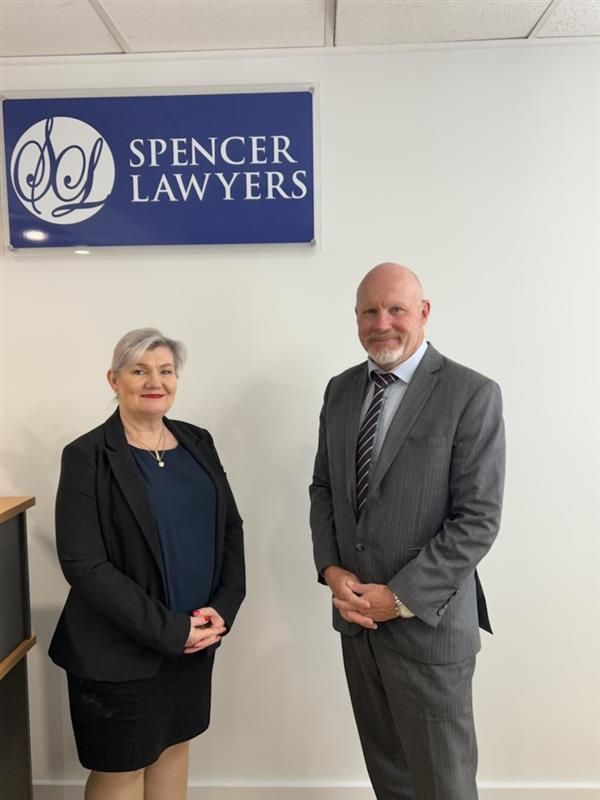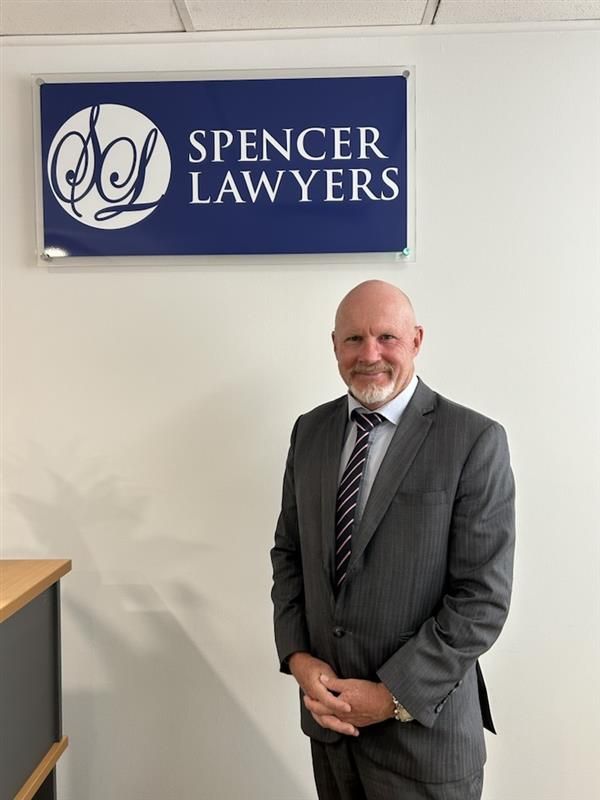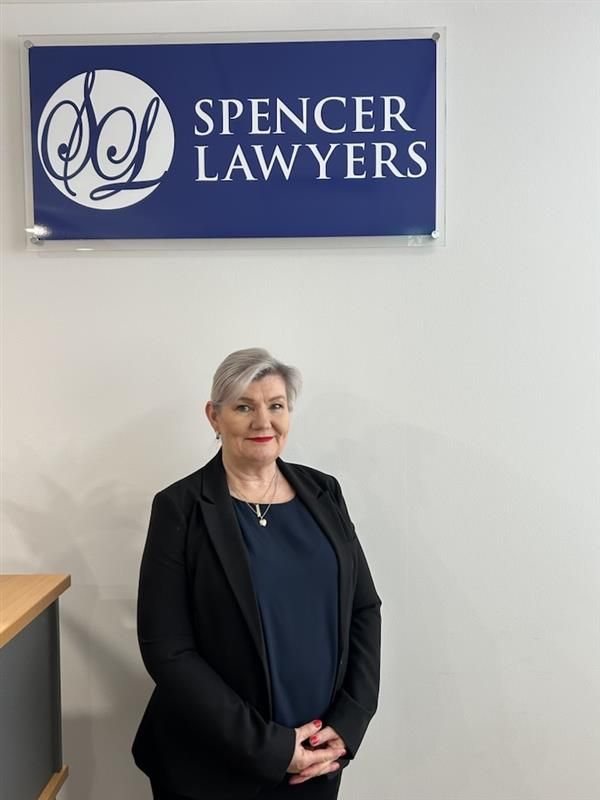About Us
The Spencer Lawyers Team at the Office in Gosford
Get legal help with traffic and criminal law charges at Spencer Lawyers, located on the Central Coast in Gosford.
We provide robust representation and help you understand your legal rights, servicing the Central Coast, Sydney metropolitan area, Wyong, Newcastle, and all NSW courts.
David Spencer established Spencer Lawyers in 2010 after serving 20 years in the police force, including general uniform duties, criminal investigation, and as a prosecutor. We’ll pass on our intimate knowledge to you in matters of police questioning, investigations, and procedures.
David Spencer
Principal Solicitor
Phone Number: 0414 709 543
Email: david@spencerlawyers.com.au
Frequently Asked Questions
Do I have to speak to police?
As a general rule, no one is required to answer any questions asked of them by the police.
In fact, answering an investigating police officer’s questions will generally never assist you.
More often than not, it will assist the police.
Whenever spoken to by police remember your right to silence and immediately contact an experienced criminal lawyer.
The police told me I don’t have to speak to a lawyer, is that true?
The police will tell you that because they don’t want you to know your rights.
The police should not be giving out legal advice.
If the police are prosecuting you, they are the last people you should be taking advice from.
The police told me just to plead guilty as I will get a section 10 or a light penalty. What should I do?
Firstly, don’t listen to their advice. They just don’t want to go to court.
They don’t want you to defend the charge.
Call us for advice because you may have a defence.
If I don’t like the result, can I appeal?
Yes. You have the right of appeal to the District Court in respect to any sentence imposed by the Local Court.
Your appeal should be lodged within 28 days of the date of sentencing or, with leave of the judge; you may lodge up to 3 months afterwards.
You can also appeal the outcome of a hearing and a finding of guilt relating to charges against you. The same time periods apply for this type of appeal.
What are the consequences of an AVO?
If you hold a shooters licence or a security licence, your licence will be cancelled for ten years and any firearm in your possession will be confiscated.
You cannot apply for either type of licence for ten years. AVOs have a significant impact on any family law proceedings and the court will not consider shared time for a parent if there is domestic violence.
Agreeing to an AVO is often taken by the Family Court as an admission of the presence of domestic violence in a relationship. This often results in a parent having supervised contact following false accusations by the other parent.
If the applicant made a false allegation to get the AVO, can you be confident they won’t make a false allegation to say you have breached the AVO? A breach of an AVO is a criminal offence and carries a maximum penalty of a $5,500 fine and/or 2 years imprisonment.
If the allegation is one of violence, then the court must consider a term of imprisonment as a penalty.
Drugs were found in my car, but they’re not mine. What should I do?
The police must prove that you had knowledge and exclusive possession.
Contact us to discuss the matter.
Understanding Common Wills Jargon
We know there’s a lot of legal jargon around wills, and at Spencer Lawyers, we’ll do our best to make the process as clear and simple as possible for you when creating your will.
To get started, here’s a round up of some of the terms you’ll come across when you come to see us so that you can be familiar with these phrases and lessen your stress when discussing your will in detail.
- Estate – everything you own upon your death
- Executor – the person who makes sure everything is distributed as you wish, according to your will
- Beneficiary – people who are given a share of your estate
- Residue – what is left after debts and costs are paid
- Intestate – dying without leaving a will
There are many more terms and phrases that you’ll hear when you are creating a will, and at Spencer Lawyers, we’re always happy to answer your questions and assist you to understand the finer details.
Power of Attorney & Enduring Guardianships
There are three different types of power of attorney to consider in New South Wales, including:
- Enduring power of attorney: This is when you appoint someone else (usually a legal representative or a family member) to make financial decisions and property-related choices in case you become incapacitated to the point where you are unable to make these kinds of decisions for yourself anymore.
- Enduring power of guardianship: Another situation where you appoint a legal representative or family member, although in this case, it is to make medical and lifestyle decisions if you become unable to do so yourself. This can include decisions on health services and accommodation providers like nursing homes.
- Advance health directive: You can make decisions on your future healthcare if you become unable to make those decisions for yourself anymore. This can include minor treatments like dental care to large decisions like refusal of medical intervention.
Any Central Coast resident who is aged 18 or over and has the capacity to make health and financial decisions for themselves can appoint a power of attorney.
Unfortunately, medical conditions as we age can rob us of the ability to make these decisions later in life. By appointing a power of attorney in advance, you can be sure your health and financial wishes are adhered to.
You are allowed to nominate a single person for the power of attorney or two people that can make these decisions on your behalf individually or collectively. For the power of guardianship, you can also appoint two people, but they will have to make these decisions together.
It is important that you choose somebody (or multiple people) that you can trust. We also advise you to speak to your family about your decision before seeking legal advice from a will lawyer. This will help reduce any undue stress or complications in the future.
Speak to our will lawyers on the Central Coast about your wishes and we can advise you on the best course of action and provide the right legal documents to ensure your wishes are carried out as best as possible.
What are the stages of will preparation?
To begin making your will, you will need to have the necessary documents at hand to pass on to your solicitor. This can include your birth certificate, marriage/divorce certificates, mortgage information/deeds to your property, insurance information and details of your banks/saving accounts. Having these ready prior to meeting with your will solicitor can help to speed up the process.
The process will involve naming an executor, a guardian to any dependents and your beneficiaries. You should clearly outline how you would like your assets to be divided upon your passing – whether this is in percentages or specified amounts.
In order for your will to be valid, it must be signed clearly under the witness of two eligible people. Your witnesses will also sign your will. To be eligible, they must be over 18 and can’t be beneficiaries of the will.
What to consider when making a will?
Below, we have created a checklist of things to consider when planning your will. A wills solicitor is a legal professional and can assist you with all of the details of the document, however, it helps to know:
- What wishes you have for your funeral
- Who you would like to be the executor of your will
- Who you would like to inherit your finances
- Who you would like to care for your children
- If you want to bequest particular possessions
- Whether you would like to assign a power of attorney









